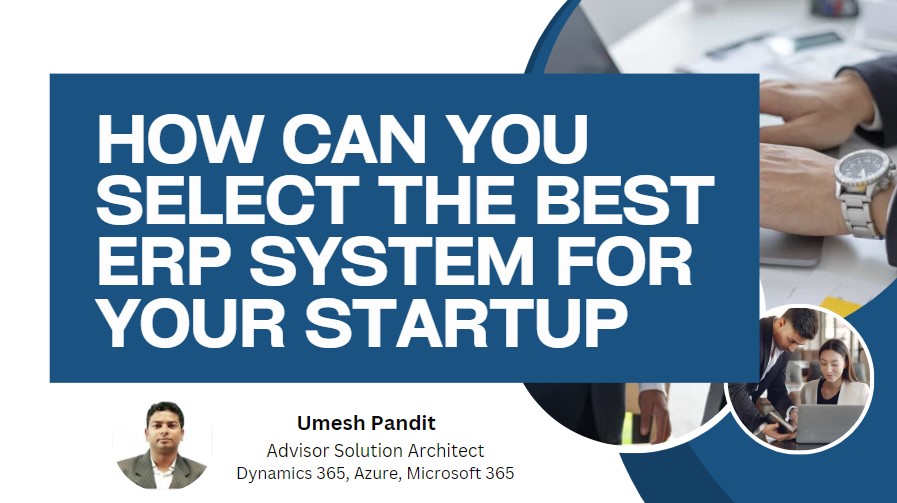Selecting the right ERP system is a crucial decision for any startup, as it can streamline operations, enhance efficiency, and fuel growth. Here's a comprehensive guide on how to choose the best ERP system for your startup:
- Assess Your Needs: Begin by identifying your business's specific needs. What processes require automation? Involve key stakeholders to gain insights into the pain points and inefficiencies within your organization.
- Budget Considerations: Determine your budget for ERP implementation, including software, hardware, training, and ongoing maintenance costs. Be realistic about what you can afford.
- Scalability: Choose a system that can grow with your startup. Your ERP should adapt to changing business demands and expanding operations without the need for a complete overhaul.
- Industry Requirements: Some industries have unique compliance and operational requirements. Ensure that the ERP system you choose can accommodate these specific needs.
- Functionality: Evaluate the functionality of ERP options. Does it cover all the critical aspects of your business, such as finance, inventory management, HR, and customer relationship management (CRM)? Make a checklist of essential features.
- User-Friendliness: An ERP system should be user-friendly, as it will be used by employees across various departments. Complex systems may require extensive training, which can be time-consuming and costly.
- Vendor Reputation: Research ERP vendors thoroughly. Look for their track record, customer reviews, and industry reputation. A reliable vendor is more likely to provide continuous support and updates.
- Customer Support: Excellent customer support is vital. Confirm that the vendor offers ongoing support, and inquire about response times and available channels for assistance.
- Integration Capabilities: Ensure that the ERP system can seamlessly integrate with your existing software and systems. This reduces the risk of data silos and enhances data flow.
- Security and Compliance: Data security is paramount. Verify that the ERP system complies with industry regulations and has robust security measures in place to protect sensitive information.
- Customization: The ability to tailor the ERP system to your startup's unique needs can be a significant advantage. Look for customization options.
- Demo and Testing: Request demos of the ERP systems you're considering. This hands-on experience will help you gauge how well the system aligns with your requirements.
- References: Reach out to other businesses that have implemented the ERP system. Their experiences can provide valuable insights into the system's real-world performance.
- Total Cost of Ownership: Consider the long-term costs associated with the ERP system, including licensing, maintenance, and potential expansion expenses. Calculate the total cost of ownership over several years.
- Implementation Plan: Develop a comprehensive implementation plan that outlines the steps, timeline, and responsibilities for deploying the ERP system in your startup.
- Change Management: Prepare your team for the transition to the new ERP system. Adequate training and change management strategies are essential to minimize disruptions.
- Continuous Improvement: Finally, remember that selecting an ERP system is not the end of the journey. Regularly assess and optimize the system to ensure it continues to meet your startup's evolving needs.
Conclusion
In conclusion, selecting the best ERP system for your startup involves careful consideration of your current and future needs, budget, vendor reputation, and system functionality. It's a decision that can have a profound impact on your business's efficiency and growth, so take your time to make an informed choice.
Selecting the best ERP system is a game-changer for your startup's success!








No comments:
Post a Comment